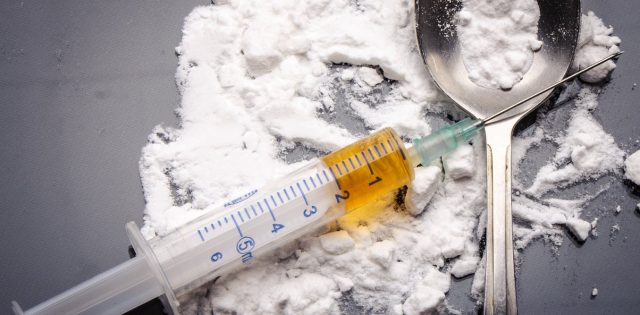The Human Rights Writers Association of Nigeria (HURIWA) has revealed that 95 per cent of pharmaceutical stores across the country are engaged in the illegal sale of hard drugs, warning that Nigeria is facing a national emergency with the rapid rise in youth addiction.
The disclosure was made at the 2025 National Human Rights Lecture held in Abuja on Tuesday, where the group and experts called for immediate, coordinated national action to combat the growing menace.
Speaking on the theme “Keeping Nigerian Children Free from Hard Drugs: A Task for All,” Guest Lecturer and former Deputy Vice-Chancellor of the University of Abuja, Professor Sadiq Abba, described the situation as a looming catastrophe.
He said that without urgent intervention, Nigeria risks losing an entire generation to drug addiction.
“It would shock you to know that 95 per cent of pharmaceutical stores in Nigeria didn’t open to profit from Panadol or paracetamol but from selling drugs illegally.
“They are on every street, making it easy for young people to access these substances. It’s worrisome,” Abba lamented.
He commended the National Drug Law Enforcement Agency (NDLEA) for its efforts but decried its limited capacity due to underfunding and poor institutional support.
“NDLEA is doing a perfect job, but they are swimming against the tide. No single budget line exists to support anti-drug efforts at the family, school, or media level,” he said.
Citing his 12-year experience on a committee studying Japan’s educational system, Abba emphasised the importance of family-based intervention, highlighting how countries like Japan, Norway, Portugal, Malaysia, and Saudi Arabia embed parental responsibility into national anti-drug strategies through structured support and dedicated budget lines.
“Drug abuse prevention begins in the home. In Japan, families are given allowances to build values in their children. In Nigeria, we lack such systemic backing. “No budget line exists for anti-drug education in schools or media at any level of government,” he said.
Professor Abba described the current legal frameworks as inadequate and called on the National and State Assemblies to go beyond lawmaking and demonstrate a genuine commitment to treating drug addiction as a national priority.
He advocated for bold reforms modelled after countries like the Philippines under President Rodrigo Duterte, who declared an all-out war against drugs.
“In the Philippines, Duterte arrested every police district commander suspected of collusion with drug barons. Within a week, illegal drug circulation dropped by 79%. Nigeria must embrace similar resolve.
“There is no village in Nigeria where police don’t collect returns from chemists illegally selling controlled drugs,” he asserted.
Backing his claims with examples from the University of Abuja, Abba said that some students come to class drugged and disoriented.
“We had an exam where only 175 attended lectures throughout the semester, but over 500 showed up for the exam, some intoxicated. One collapsed, revived, and asked what the question paper was meant for,” narrated.
In his welcome address, HURIWA National Coordinator, Emmanuel Onwubiko, said Nigeria is currently battling a drug crisis that rivals some of the worst-hit countries globally. He cited a United Nations report indicating that 14.4 per cent of Nigerians aged 15 to 64 abuse drugs, almost three times the global average.
“Nigerian kids are almost as badly affected as the youngsters in the UK whom the BBC reported are battling severe addiction to ketamine.
“What we are witnessing is a silent epidemic. We are building a nation of drug addicts, and if we don’t act now, the consequences will be irreversible,” Onwubiko stated.
He said that HURIWA has already printed and distributed 4,000 copies of a comic storybook designed to educate schoolchildren on the dangers of hard drugs.
The Coordinator called on philanthropists and private organisations to support the group’s plans to expand the campaign nationwide and introduce cartoon-based awareness programmes.
Both speakers agreed that protecting Nigerian children from the scourge of drug abuse should be treated as a fundamental human right and a national priority.
The event also featured the presentation of Human Rights Impact Awards to the Chairman of the Independent National Electoral Commission (INEC), Prof. Mahmood Yakubu, and former Chief of Army Staff, Lt. Gen. Tukur Buratai (rtd), in recognition of their contributions to democratic and human rights development.







